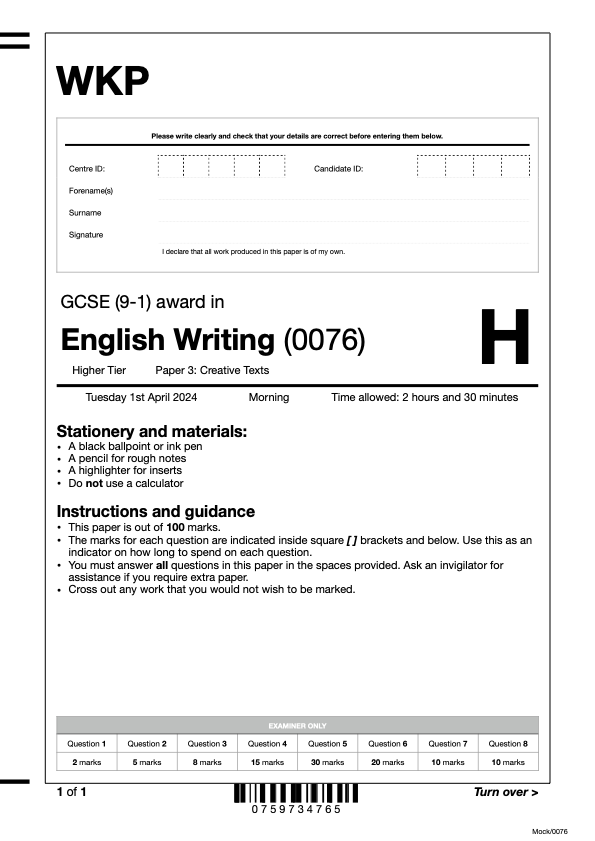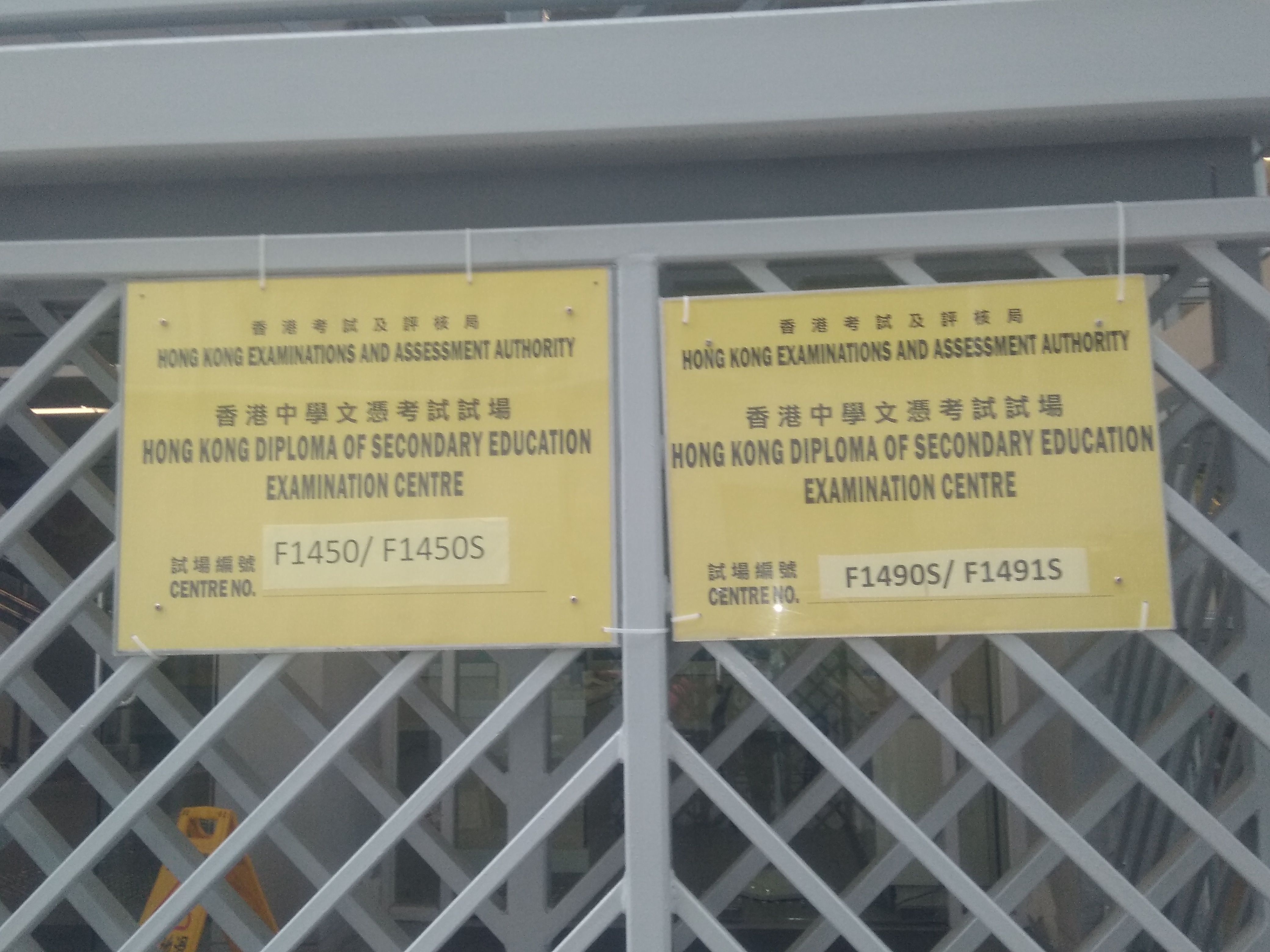|
A-level
The A-level (Advanced Level) is a subject-based qualification conferred as part of the General Certificate of Education, as well as a school leaving qualification offered by the educational bodies in the United Kingdom and the educational authorities of British Crown dependencies to students completing secondary or pre-university education. They were introduced in England and Wales in 1951 to replace the Higher School Certificate. The A-level permits students to have potential access to a chosen university they applied to with UCAS points. They could be accepted into it should they meet the requirements of the university. A number of Commonwealth countries have developed qualifications with the same name as and a similar format to the British A-levels. Obtaining an A-level, or equivalent qualifications, is generally required across the board for university entrance, with universities granting offers based on grades achieved. Particularly in Singapore, its A-level examin ... [...More Info...] [...Related Items...] OR: [Wikipedia] [Google] [Baidu] [Amazon] |
GCE Advanced Level (United Kingdom)
The A-level (Advanced Level) is a main school leaving qualification of the General Certificate of Education in England, Wales, Northern Ireland, the Channel Islands and the Isle of Man. It is available as an alternative qualification in other countries, where it is similarly known as an A-Level. Students generally study for A-levels over a two-year period. For much of their history, A-levels have been examined by written exams taken at the end of these two years. A more modular approach to examination became common in many subjects starting in the late 1980s, and standard for September 2000 and later cohorts, with students taking their subjects to the half-credit "AS" level after one year and proceeding to full A-level the next year (sometimes in fewer subjects). In 2015, Ofqual decided to change back to a terminal approach where students sit all examinations at the end of the second year. AS is still offered, but as a separate qualification; AS grades no longer count towards ... [...More Info...] [...Related Items...] OR: [Wikipedia] [Google] [Baidu] [Amazon] |
General Certificate Of Secondary Education
The General Certificate of Secondary Education (GCSE) is an academic qualification in a range of subjects taken in England, Wales, and Northern Ireland, having been introduced in September 1986 and its first exams taken in 1988. State schools in Scotland use the Scottish Qualifications Certificate instead. However, private schools in Scotland often choose to follow the English GCSE system. Each GCSE qualification is offered as a specific school subject, with the most commonly awarded ones being English literature, English language, mathematics, science (combined & triple), history, geography, art, Design and Technology, design and technology (D&T), business studies, economics, music, and Modern language, modern foreign languages (e.g., Spanish, French, German) (MFL). The Department for Education has drawn up a list of core subjects known as the English Baccalaureate for England based on the results in eight GCSEs, which includes both English language and English literature, ... [...More Info...] [...Related Items...] OR: [Wikipedia] [Google] [Baidu] [Amazon] |
Edexcel
Edexcel (also known since 2013 as Pearson Edexcel) is a British multinational education and examination body formed in 1996 and wholly owned by Pearson plc since 2005. It is the only privately owned examination board in the United Kingdom. Its name is a portmanteau term combining the words ''education'' and ''excellence''. Edexcel regulates school examinations under the British Curriculum and offers qualifications for schools on the international and regional scale. It is the UK's largest awarding organisation offering academic and vocational qualifications in schools, colleges and work places in the UK and abroad. It is also recognised internationally. In 2019, Edexcel was the focus of significant controversy following a leak of an A-level examination. History Edexcel was formed in 1996 by the merger of two bodies, the BTEC (Business & Technology Education Council) and ULEAC (University of London Examinations and Assessment Council). In 2003, the Edexcel Foundation (the c ... [...More Info...] [...Related Items...] OR: [Wikipedia] [Google] [Baidu] [Amazon] |
Singapore-Cambridge GCE Advanced Level
The Singapore-Cambridge General Certificate of Education Advanced Level (or Singapore-Cambridge GCE A-Level) is a GCE Advanced Level examination held annually in Singapore and is jointly conducted by the Ministry of Education (MOE), Singapore Examinations and Assessment Board (SEAB) and the University of Cambridge Local Examinations Syndicate (UCLES). The examination is taken by school students upon the completion of their pre-university education at junior colleges (JC)s and centralised institutes, and is also open to private candidates. The Singapore-Cambridge GCE A-Level examination has been de-linked from the British A-Level examinations since 2002, when the MOE took over the management of its national examination, owing to differences the education systems in the two countries. The Singapore-Cambridge GCE A-Level is recognised internationally by universities as a university entrance examination. The standards and grading for the subjects are determined by SEAB and MOE in c ... [...More Info...] [...Related Items...] OR: [Wikipedia] [Google] [Baidu] [Amazon] |
Sixth Form
In the education systems of Barbados, England, Jamaica, Northern Ireland, Trinidad and Tobago, Wales, and some other Commonwealth countries, sixth form represents the final two years of secondary education, ages 16 to 18. Pupils typically prepare for A-level or equivalent examinations like the International Baccalaureate or Cambridge Pre-U. In England, Northern Ireland, and Wales, the term Key Stage 5 has the same meaning. It only refers to academic education and not to vocational education. Barbados, Trinidad and Tobago In some secondary schools in Barbados and Trinidad and Tobago, the sixth and seventh years, are called Lower and Upper Sixth respectively. England and Wales ''Sixth Form'' describes the two school years that are called by many schools the lower sixth (L6) and upper sixth (U6). The term survives from earlier naming conventions used in both the state-maintained and private school systems. Another well known term is Year 12 and 13, carried on from the year g ... [...More Info...] [...Related Items...] OR: [Wikipedia] [Google] [Baidu] [Amazon] |
Education In The United Kingdom
Education in the United Kingdom is a devolved matter, with each of the countries of the United Kingdom having separate systems under separate governments. The UK Government is responsible for England, whilst the Scottish Government, the Welsh Government and the Northern Ireland Executive are responsible for Scotland, Wales and Northern Ireland, respectively. For details of education in each country, see: * Education in England * Education in Northern Ireland * Education in Scotland * Education in Wales In 2018, the Programme for International Student Assessment, coordinated by the OECD, ranked the overall knowledge and skills of British 15-year-olds as 13th in the world in reading, literacy, mathematics, and science. The average British student scored 503.7, compared with the OECD average of 493. In 2014, the country spent 6.6% of its GDP on all levels of education – 1.4 percentage points above the OECD average of 5.2%. In 2017, 45.7% of British people aged 25 to 64 h ... [...More Info...] [...Related Items...] OR: [Wikipedia] [Google] [Baidu] [Amazon] |
General Certificate Of Education
The General Certificate of Education (GCE) is a subject-specific family of academic qualifications used in examination board, awarding bodies in England, Wales, Northern Ireland, Education in the Crown dependencies, Crown dependencies and a few Commonwealth countries. For some time, the Education in Scotland, Scottish education system has been different from those in the other countries of the United Kingdom. The GCE is composed of three levels; they are, in increasing order of difficulty: * the GCE Ordinary Level, Ordinary Level ("O Level"); * the Advanced Subsidiary Level ("A1 Level" or "AS Level"), higher than the O Level, serving as a level in its own right, and functioning as a precursor to the full Advanced Level; and * Advanced Level ("A Level"). The General Certificate of Education Advanced Level (GCE "A Levels") is an entry qualification for universities in the United Kingdom and many other locations worldwide. United Kingdom England and Wales The General Certificate ... [...More Info...] [...Related Items...] OR: [Wikipedia] [Google] [Baidu] [Amazon] |
Hong Kong Diploma Of Secondary Education
The Hong Kong Diploma of Secondary Education Examination (HKDSEE) is an examination organised by the Hong Kong Examinations and Assessment Authority (HKEAA). The HKDSE examination is Hong Kong's university entrance examination, administered at the completion of the three-year New Senior Secondary (NSS) education, allowing students to gain admissions to undergraduate courses at local universities through JUPAS. Since the implementation of the 334 Scheme, New Senior Secondary academic structure in 2012, HKDSEE replaced the Hong Kong Certificate of Education Examination (O Level, equivalent of GCSE) and Hong Kong Advanced Level Examination (A Level). Under the NSS academic structure, pupils are required to study four compulsory "Core Subjects" (Chinese Language, English Language, Mathematics, and Liberal Studies) and one to four "Elective Subjects" (the majority with two to three subjects) among the twenty available. On the 31 March 2021, it was announced that Liberal Studie ... [...More Info...] [...Related Items...] OR: [Wikipedia] [Google] [Baidu] [Amazon] |
Abitur
''Abitur'' (), often shortened colloquially to ''Abi'', is a qualification granted at the end of secondary education in Germany. It is conferred on students who pass their final exams at the end of ISCED 3, usually after twelve or thirteen years of schooling (see also, for Germany, ''Abitur'' after twelve years). In German, the term has roots in the older word meaning "Leave (Graduation) exam/diploma", which in turn was derived from the Latin (future active participle of , thus "someone who is going to leave"). As a matriculation examination, ''Abitur'' can be compared to A levels, the '' Matura'' or the International Baccalaureate Diploma, which are all ranked as level 4 in the European Qualifications Framework. In Germany Overview The ("certificate of general qualification for university entrance"), often referred to as ("''Abitur'' certificate"), issued after candidates have passed their final exams and have had appropriate grades in both the last and second last s ... [...More Info...] [...Related Items...] OR: [Wikipedia] [Google] [Baidu] [Amazon] |
Cambridge Assessment International Education
Cambridge International Education (abbreviated CIE, informally known as Cambridge International or simply Cambridge and formerly known as CAIE, Cambridge Assessment International Education and CIE, Cambridge International Examinations) is a provider of international qualifications, offering examinations and qualifications to 10,000 schools in more than 160 countries. It is part of Cambridge University Press & Assessment, a nonprofit organization, non-profit and non-teaching department of the University of Cambridge. History Cambridge University Press & Assessment is part of the University of Cambridge. Its assessment organisation was founded in 1858 as the ''University of Cambridge Local Examinations Syndicate.'' It would later on become known as (University of) Cambridge International Examinations, or simply CIE. As part of a restructuring process of the University of Cambridge, Cambridge Assessment and Cambridge University Press were merged to form Cambridge University Press ... [...More Info...] [...Related Items...] OR: [Wikipedia] [Google] [Baidu] [Amazon] |
Matriculation Examination
A matriculation examination or matriculation exam is a university entrance examination, which is typically held towards the end of secondary school. After passing the examination, a student receives a School leaving qualification, school leaving certificate recognising academic qualifications from secondary-level education. Depending on scores or grades achieved, a student may then Matriculation, matriculate to university to take up further studies. The following matriculation examinations are conducted: * A-levels – in England, Wales, Northern Ireland and several Commonwealth countries * Abitur – in Germany and Lithuania. *Iranian University Entrance Exam - in Iran * Romanian Baccalaureate, Bacalaureat – in Romania and Moldova. * Baccalauréat – in France and many francophone countries. * Eindexamen – in the Netherlands. * Exit examination – in the United States. ** Regents Exam – New York State, USA * National College Entrance Examination, Gaokao – in China. * Hig ... [...More Info...] [...Related Items...] OR: [Wikipedia] [Google] [Baidu] [Amazon] |


